Abstract
A good deal of controversy surrounds the issue of optimal treatment approaches for persons with an addictive disorder. The field is rampant with questions pertaining to goals of abstinence as distinct from moderation, in-patient rather than out-patient care, and short-term rather than long-term treatment. In recent years it has become increasingly evident to clinicians and researchers that there simply is no single, best, treatment approach for all patients suffering the effects of substance abuse. These effects constitute a multi-faceted disorder that involves biological and medical aspects, social and psychological dimensions, psychiatric and policy perspectives. A “systems” approach to the treatment of alcoholism is emerging with the identification of various alcoholic syndromes, each demanding a different management strategy. Such an approach requires new methods of patient assessment, and this paper identifies psychological factors that may influence not only the diagnosis and treatment of alcoholic syndromes, but also other health-related behaviour disorders. (The opinions expressed in this article are those of the authors and do not necessarily reflect the views or policies of the Addiction Research Foundation.)
Keywords: alcohol, stress, coping, treatment planning, lifestyle
Full text
PDF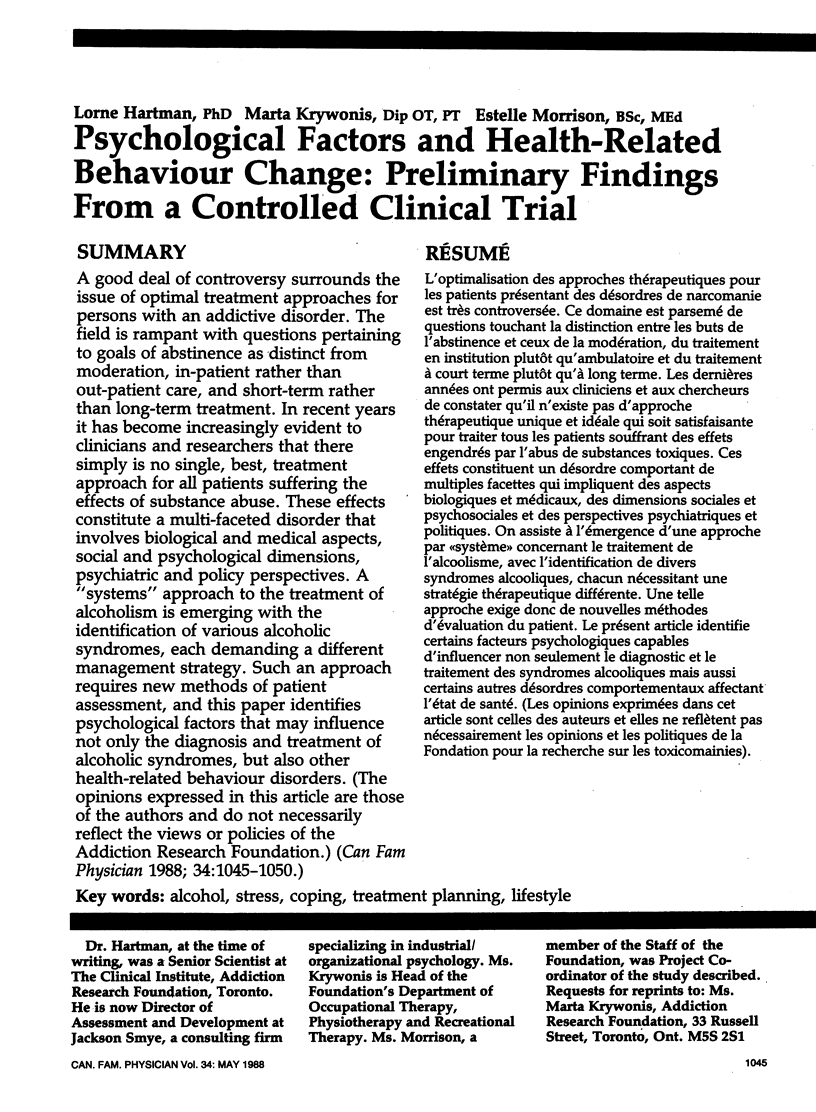
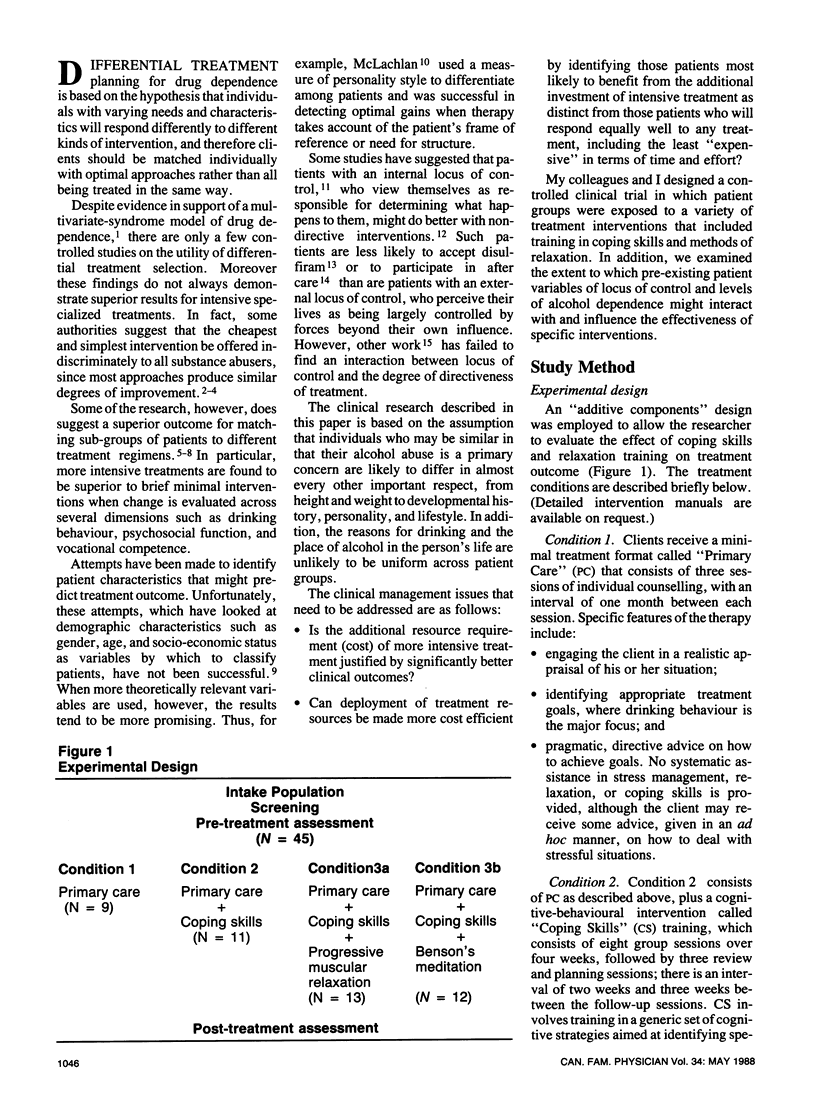
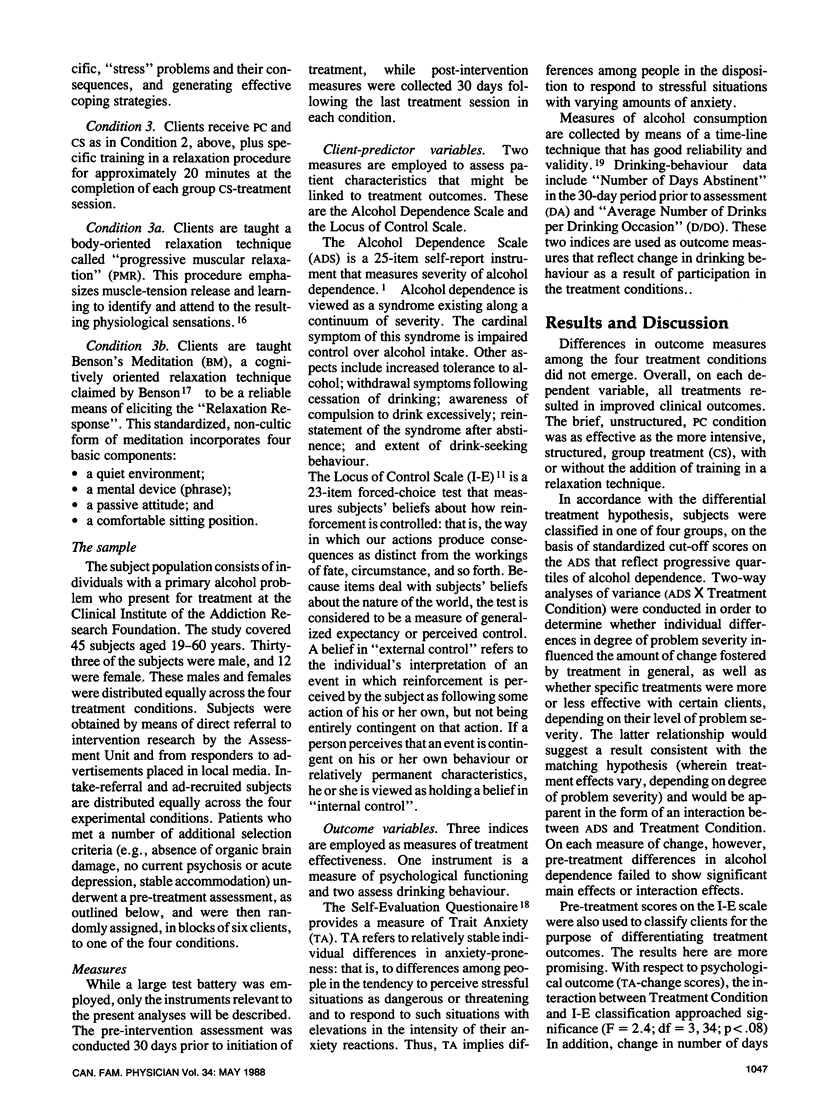
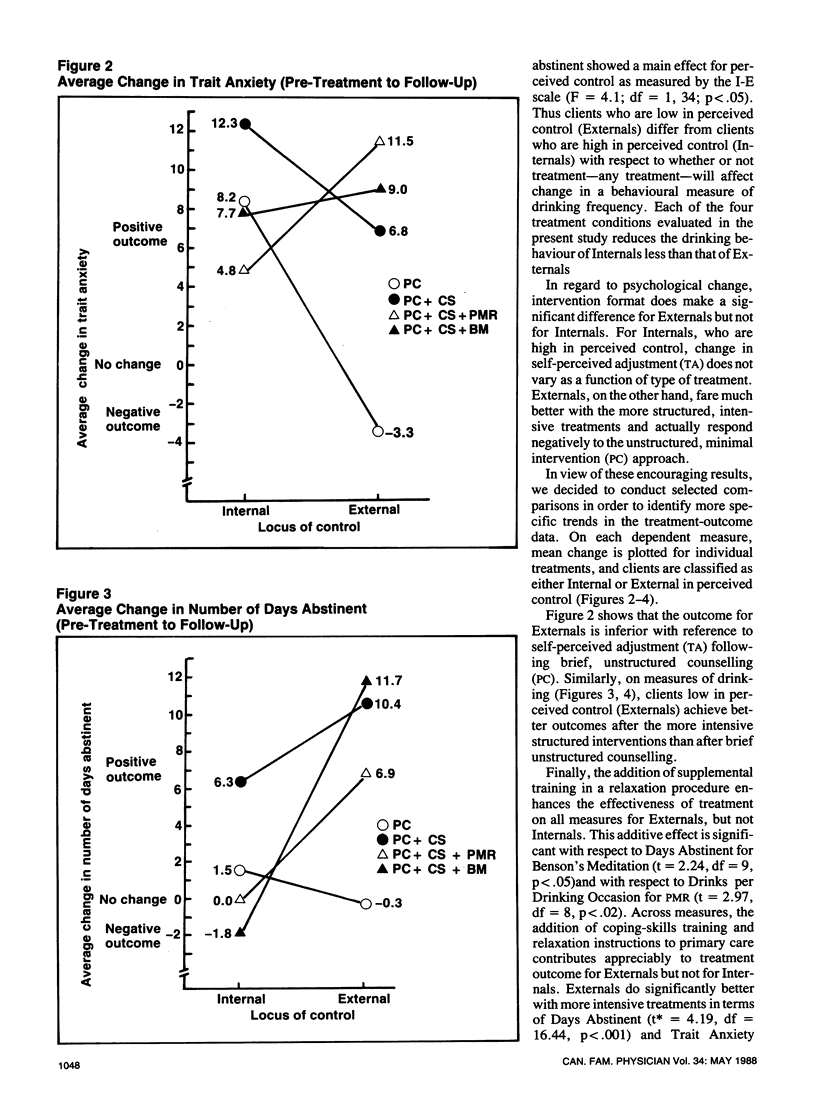
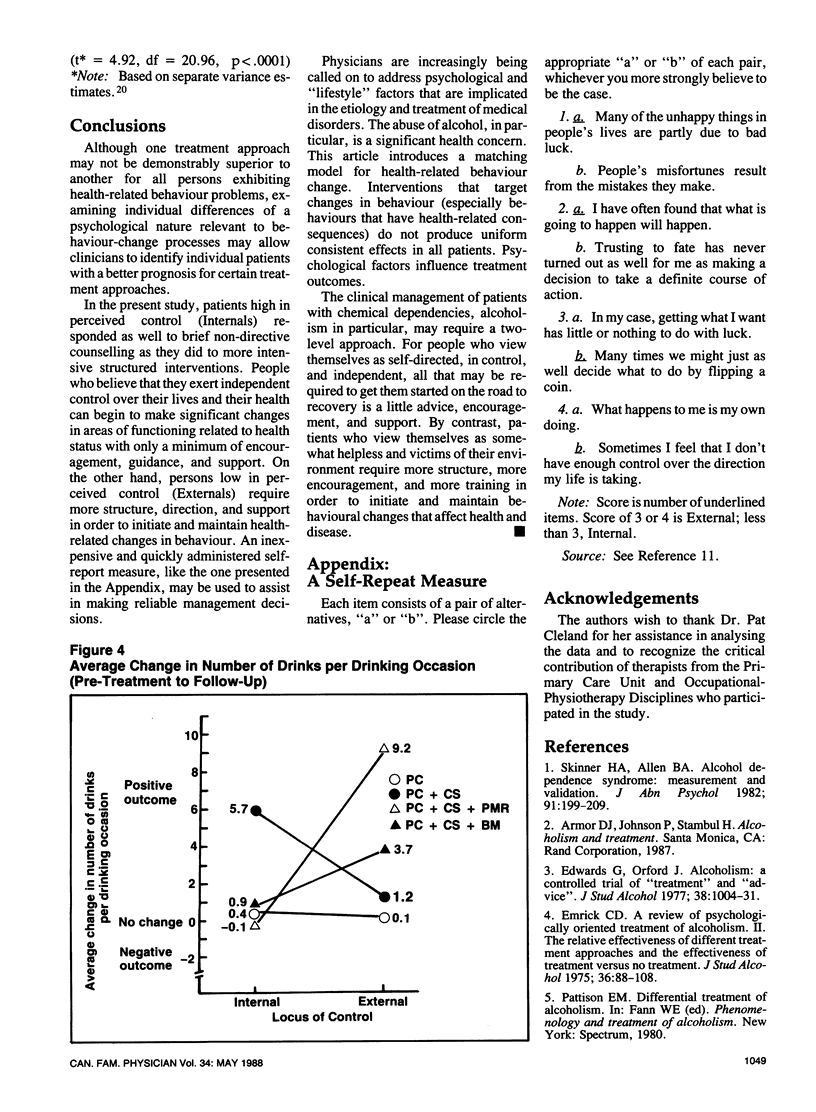
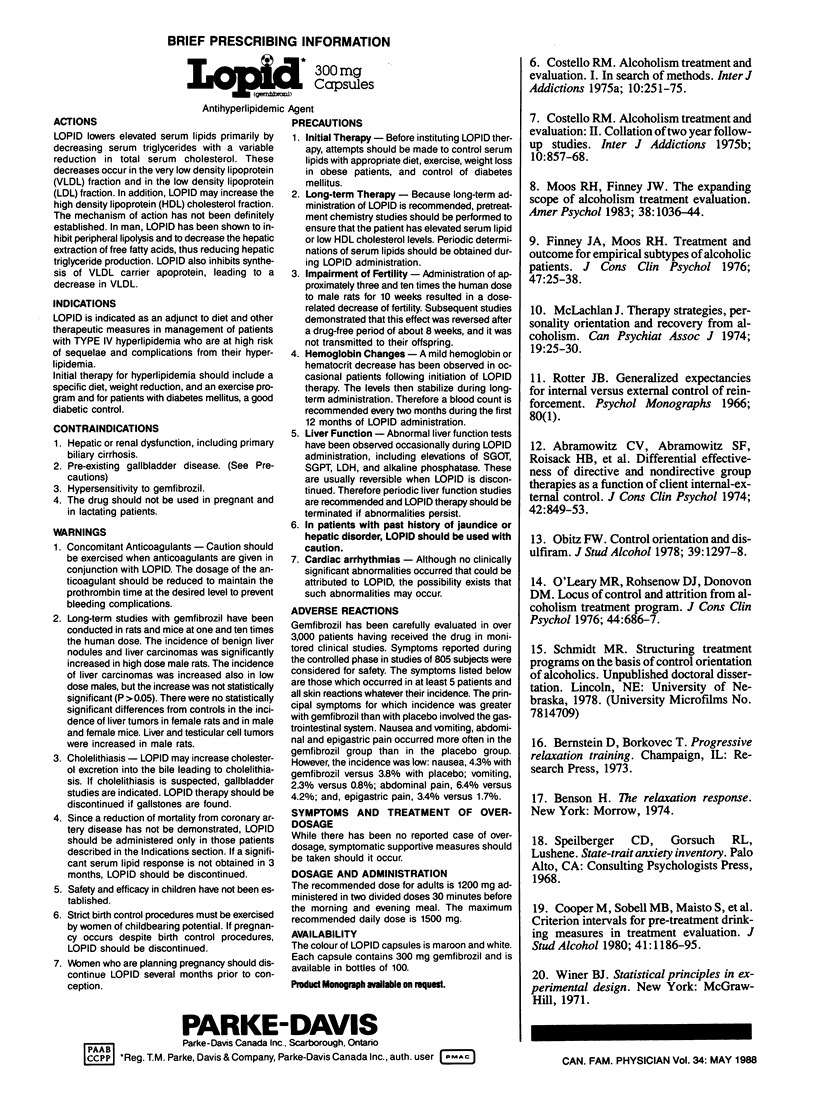
Selected References
These references are in PubMed. This may not be the complete list of references from this article.
- Abramowitz C. V., Abramowitz S. I., Roback H. B., Jackson C. Differential effectiveness of directive and nondirective group therapies as a function of client internal-external control. J Consult Clin Psychol. 1974 Dec;42(6):849–853. doi: 10.1037/h0037572. [DOI] [PubMed] [Google Scholar]
- Cooper A. M., Sobell M. B., Maisto S. A., Sobell L. C. Criterion intervals for pretreatment drinking measures in treatment evaluation. J Stud Alcohol. 1980 Nov;41(11):1186–1195. doi: 10.15288/jsa.1980.41.1186. [DOI] [PubMed] [Google Scholar]
- Edwards G., Orford J., Egert S., Guthrie S., Hawker A., Hensman C., Mitcheson M., Oppenheimer E., Taylor C. Alcoholism: a controlled trial of "treatment" and "advice". J Stud Alcohol. 1977 May;38(5):1004–1031. doi: 10.15288/jsa.1977.38.1004. [DOI] [PubMed] [Google Scholar]
- Emrick C. D. A review of psychologically oriented treatment of alcoholism. II. The relative effectiveness of different treatment approaches and the effectiveness of treatment versus no treatment. J Stud Alcohol. 1975 Jan;36(1):88–108. doi: 10.15288/jsa.1975.36.88. [DOI] [PubMed] [Google Scholar]
- Finney J. W., Moos R. H. Treatment and outcome for empirical subtypes of alcoholic patients. J Consult Clin Psychol. 1979 Feb;47(1):25–38. doi: 10.1037//0022-006x.47.1.25. [DOI] [PubMed] [Google Scholar]
- McLachlan J. F. Therapy strategies, personality orientation and recovery from alcoholism. Can Psychiatr Assoc J. 1974 Feb;19(1):25–30. doi: 10.1177/070674377401900106. [DOI] [PubMed] [Google Scholar]
- Moos R. H., Finney J. W. The expanding scope of alcoholism treatment evaluation. Am Psychol. 1983 Oct;38(10):1036–1044. doi: 10.1037//0003-066x.38.10.1036. [DOI] [PubMed] [Google Scholar]
- O'Leary M. R., Rohsenow D. J., Donovan D. M. Locus of control and patient attrition from an alcoholism treatment program. J Consult Clin Psychol. 1976 Aug;44(4):686–687. [PubMed] [Google Scholar]
- Obitz F. W. Control orientation and disulfiram. J Stud Alcohol. 1978 Jul;39(7):1297–1298. doi: 10.15288/jsa.1978.39.1297. [DOI] [PubMed] [Google Scholar]
- Skinner H. A., Allen B. A. Alcohol dependence syndrome: measurement and validation. J Abnorm Psychol. 1982 Jun;91(3):199–209. doi: 10.1037//0021-843x.91.3.199. [DOI] [PubMed] [Google Scholar]


